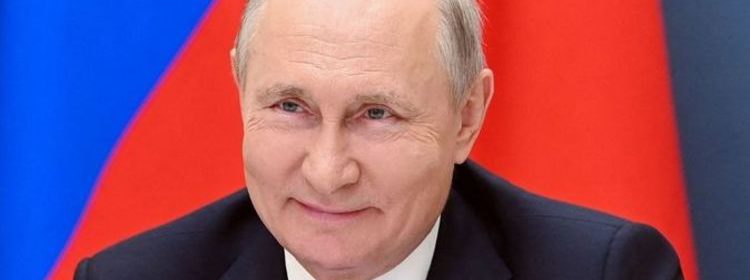Putin rubbing hands with glee as EU descends into infighting – bloc paralysed over threat

Russia’s approach to Ukraine is ‘dangerous’ says Nuland
We use your sign-up to provide content in ways you’ve consented to and to improve our understanding of you. This may include adverts from us and 3rd parties based on our understanding. You can unsubscribe at any time. More info
US President Joe Biden predicted on Wednesday that Russia will make a move on Ukraine, saying Russia would pay dearly for a full-scale invasion but suggesting there could be a lower cost for a “minor incursion”.
President Biden’s comments at a White House news conference injected uncertainty into how the West would respond should Russian President Vladimir Putin order an invasion of Ukraine, prompting the White House later to seek to clarify what Biden meant.
The US leader said: “My guess is he will move in. He has to do something.
“Russia will be held accountable if it invades – and it depends on what it does. It’s one thing if it’s a minor incursion and we end up having to fight about what to do and what to not do, etc.
“But if they actually do what they’re capable of doing … it is going to be a disaster for Russia if they further invade Ukraine.”

Russian officials have repeatedly denied planning to invade, but the Kremlin has amassed 100,000 troops near Ukraine’s borders, a buildup the West says is preparation for a war to prevent Ukraine from ever joining the NATO Western security alliance.
But as President Putin watches the West debating how to react to a potential attack by his army, EU leaders are failing to come up with a united solution.
According to Politico, on one hand, Germany is resisting proposals to cut Russia off from the SWIFT international payments system.
On the other hand, French President Emmanuel Macron hinted on Wednesday that the bloc should not necessarily follow the US lead on responses to potential Russian attacks.
He said: “It is necessary that Europeans conduct their own dialogue.”
A European proposal “that builds a new order of security and stability” is needed, he said.
Mr Macron added: “We must build it among Europeans, then share it with our allies within the framework of NATO. And then propose it to Russia for negotiation.”
Shortly after President Biden’s two-hour news conference ended, the White House stressed any Russian military move into Ukraine would elicit a tough response.
“If any Russian military forces move across the Ukrainian border, that’s a renewed invasion, and it will be met with a swift, severe, and united response from the United States and our allies,” said White House press secretary Jen Psaki.
DON’T MISS:
Putin’s Russian assault flotilla heads to English Channel [INSIGHT]
Peston: Angela Rayner calls to ‘test the majority’ in General Election [VIDEO]
Huge breakthrough US-UK trade talks – Truss’ masterclass [ANALYISIS]

But cyberattacks and paramilitary tactics by Russia “will be met with “a decisive, reciprocal, and united response”, she said.
The US State Department has cleared Lithuania, Latvia and Estonia to send US-made missiles and other weapons to Ukraine, three sources familiar with the decision said.
The third-party transfer agreements will allow Estonia to transfer Javelin anti-tank missiles to Ukraine, while Lithuania will be permitted to send Stinger missiles, said one of the sources.
Mr Biden said President Putin had asked him for guarantees on two issues: that Ukraine would never join NATO and that “strategic” or nuclear weapons never be stationed on Ukrainian soil.
US officials see limiting NATO expansion as a non-starter, but Biden noted there was little chance of Ukraine joining the alliance soon and he suggested there could be a deal under which the West might not station nuclear forces in Ukraine.
“We can work out something on the second piece,” depending on Russia’s own posture, President Biden said.
The Kremlin said tension around Ukraine was increasing and it still awaited a written US response to its sweeping demands for security guarantees from the West, including a halt to further NATO expansion and a withdrawal of alliance forces from central and eastern European nations that joined it after 1997.
Russia has also moved troops to Belarus for what it calls joint military exercises, giving it the option of attacking neighbouring Ukraine from the north, east and south.
Source: Read Full Article
